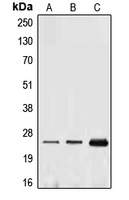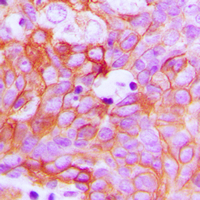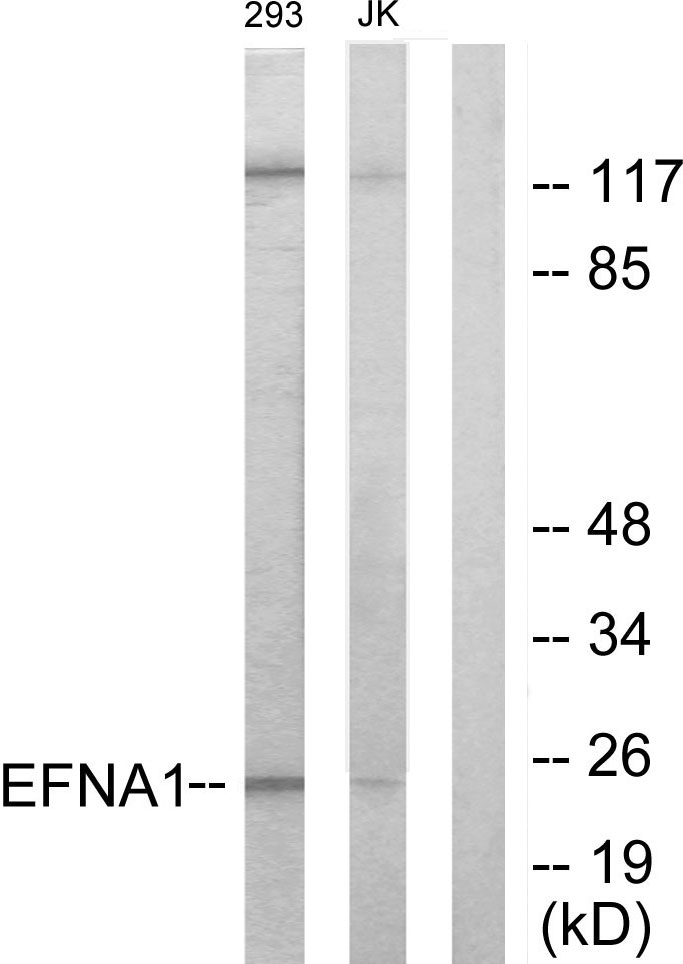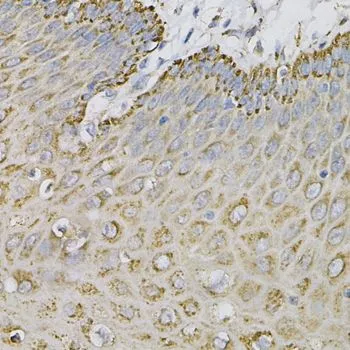
WB analysis of THP1 (A), HUVEC (B), MCF7 (C) whole cell lysates using GTX56156 Ephrin A1 antibody.
Ephrin A1 antibody
GTX56156
ApplicationsWestern Blot, ImmunoHistoChemistry, ImmunoHistoChemistry Paraffin
Product group Antibodies
ReactivityHuman
TargetEFNA1
Overview
- SupplierGeneTex
- Product NameEphrin A1 antibody
- Delivery Days Customer9
- Application Supplier NoteWB: 1:500 - 1:1000. IHC-P: 1:100 - 1:200. *Optimal dilutions/concentrations should be determined by the researcher.Not tested in other applications.
- ApplicationsWestern Blot, ImmunoHistoChemistry, ImmunoHistoChemistry Paraffin
- CertificationResearch Use Only
- ClonalityPolyclonal
- ConjugateUnconjugated
- Gene ID1942
- Target nameEFNA1
- Target descriptionephrin A1
- Target synonymsB61, ECKLG, EFL1, EPLG1, GMAN, LERK-1, LERK1, TNFAIP4, ephrin-A1, TNF alpha-induced protein 4, eph-related receptor tyrosine kinase ligand 1, epididymis secretory sperm binding protein, gastric cancer metastasis associated long noncoding RNA, immediate early response protein B61, ligand of eph-related kinase 1, tumor necrosis factor, alpha-induced protein 4
- HostRabbit
- IsotypeIgG
- Protein IDP20827
- Protein NameEphrin-A1
- Scientific DescriptionThis gene encodes a member of the ephrin (EPH) family. The ephrins and EPH-related receptors comprise the largest subfamily of receptor protein-tyrosine kinases and have been implicated in mediating developmental events, especially in the nervous system and in erythropoiesis. Based on their structures and sequence relationships, ephrins are divided into the ephrin-A (EFNA) class, which are anchored to the membrane by a glycosylphosphatidylinositol linkage, and the ephrin-B (EFNB) class, which are transmembrane proteins. This gene encodes an EFNA class ephrin which binds to the EPHA2, EPHA4, EPHA5, EPHA6, and EPHA7 receptors. Two transcript variants that encode different isoforms were identified through sequence analysis. [provided by RefSeq, Jul 2008]
- ReactivityHuman
- Storage Instruction-20°C or -80°C,2°C to 8°C
- UNSPSC41116161









